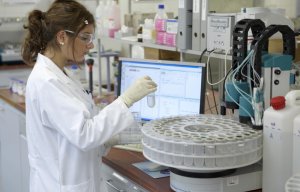
New Standard 100 by Oeko-Tex test criteria come into force
These new changes are intended to help the organisation further increase awareness in the textile manufacturing chain.

11th January 2017
Innovation in Textiles
|
Zurich
The International Oeko-Tex Association of independent textile testing institutes has reviewed the requirements of its products and has published a large number of new changes to Made In Green, MySTeP, STeP and Standard 100 regulations.
According to the Association, these new requirements allow Oeko-Tex to provide significant support for both the Zero Discharge of Hazardous Chemicals (ZDHC) initiative and the Detox campaign.
These new changes are intended to help the organisation further increase awareness in the textile manufacturing chain regarding the responsible handling of potentially hazardous substances in textile products and sustainable production in 2017.
The Oeko-Tex Association has established a new price strategy for the Made In Green by Oeko-Tex product label to fully satisfy market requirements. The new pricing offers label issuers the option to use smaller packets of labels, or even a single label for their product to be labelled with Made In Green by Oeko-Tex.
After three years on the market, Oeko-Tex has revised the STeP by Oeko-Tex limit value tables in Annex G1 and G2 of the standard document. These revisions have been influenced by ongoing changes in the global environment, input from customers and current regulatory developments.
A new chapter has been added in Annex D: “Hazardous Processes That Should Be Avoided”. These processes to be avoided include the use of potentially hazardous surfactants, sodium hypochlorite (as a bleaching agent) and defoamers that are potentially damaging to the environment.
The new regulations for Standard 100 by Oeko-Tex will come into force on 1 April 2017 following a three-month transition period. At the parameter “per- and polyfluorinated compounds”, a large number of substances have been added or listed explicitly by name in product class I (items for babies and small children) and provided with limit values.
As a result, in product class I, the use of per- and polyfluorinated compounds is severely restricted and nearly eliminated. A large number of substances is also included in the list of regulated softeners (phthalates) in all of the product classes. The three organic tin compounds dipropyltin (DPT), monophenyltin (MPhT) and tetraethyltin (TeET), are now regulated with limit values in all product classes. In addition, the use of the blue colourant “Navy Blue” is also now explicitly prohibited for product certification according to Standard 100 by Oeko-Tex.
Oeko-Tex will inform all interested companies about the new regulations regarding product certification in line with Standard 100 by Oeko-Tex within the framework of a webinar on 25 January 2017.

Business intelligence for the fibre, textiles and apparel industries: technologies, innovations, markets, investments, trade policy, sourcing, strategy...
Find out more